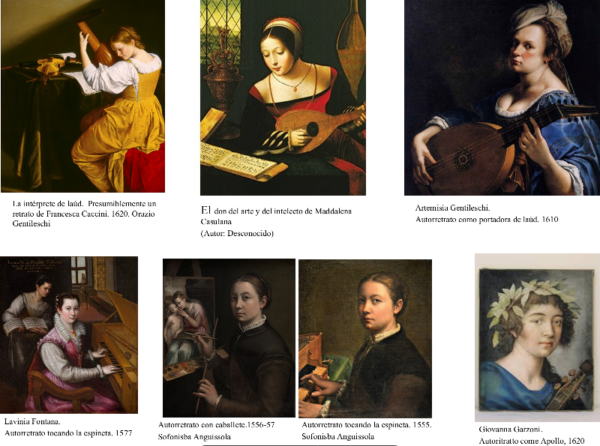Begoña Fernández Cabaleiro
Departamento de Filosofía y Sociedad, Facultad de Filosofía, Universidad Complutense de Madrid (bfcabaleiro@filos.ucm.es; ORCID: 0000-0002-4644-5799).
Women artists. Influences and relationships from Francesca Caccini’s Italy
Abstract: Francesca Caccini premiered La liberazione di Ruggiero in 1625, considered the first opera composed by a woman, the only one that survives of the five created by Francesca, also the first Italian opera performed outside Italy. In June 2024, four hundred years later, it premiered in Madrid with the collaboration of the Teatro Real, generating a new reflection on women in cultural and artistic creation in the 16th/17th centuries, a time of little female relevance in this field. We will try to reflect circumstances and characteristics of the lives of some women, especially close to the space and time of Francesca Caccini, in the hope of shedding some light on some questions: How did their artistic potential develop in the 16th/17th centuries? What roles were assigned to them? In what areas of relationships could they move? Were they simple shadows or did they have the possibility of exerting influence with their work? What is their situation in History today? This analysis has been carried out along two fundamental lines: First, by establishing a dialogue with her time: Francesca Caccini’s environment at the Medici court, the interrelation between artists and different arts. We will also see in a brief profile other artists who developed their art in the Italy of her time with greater or less success. Secondly, we will establish a dialogue with the contemporary world through examples of current artists who propose their own creations as a form of conversation with these Italian artists of the 17th century.
Keywords: Women; Opera; Music; Painting; Modern age.

